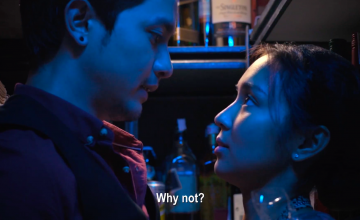Humans are connection-seeking by nature. It’s in our DNA. Some yearn for it from their family and friends—the comforting hug from familiar faces, the inside jokes, and the awkward banter during holiday reunions.
Others, however, crave connection from the world—or at least a fraction of it. They live for validation from folks beyond their social circles; sometimes, even from strangers living miles away. And in the age of social media, most of these individuals have set their sights on becoming an influencer.
Now, there’s nothing inherently wrong with being one. In fact, this emerging industry has given us some of the best gifts of the internet era: awareness on crucial issues, tutorials on various crafts and life hacks, and an endless stream of memes that can make the gloomiest days a tad brighter.
Influencers—in their finest moments—can be a force for good. Considering the lack of policies and ethical guidelines that come with the career, though, it’s no surprise that it has also become a breeding ground for creators with morally questionable, if not downright wicked, intentions.
A college degree in influencing… wait, what?
So, the academia seems to have realized the potential of “influencing” as a legitimate profession, and decided to offer a helping hand to aspiring social media content creators.
While it’s true that different crash courses relevant to this line of work have already popped up, South East Technological University (SETU) in Carlow, Ireland is boldly staking its claim as the first institution to offer a full-blown program “tailored toward the influencer economy.”
SETU is set to accept applicants for a three-year college degree on how to become a pro influencer starting this November, and senior lecturer Irish McCormick (who also happens to be the curriculum’s co-designer) told The Washington Post that they’ve been nurturing this venture since 2019.
Formally named the Bachelor of Arts in Content Creation and Social Media, it covers a broad spectrum of course topics—digital marketing, media laws and ethics, social psychology, cultural studies, crisis management, creative content creation, and data analysis, among others.
According to SETU’s official site, this program aims to “enlarge your talent for connecting with people who are interested in what you have to say. We will help you professionalize your practice, so that it transforms from hobby to career. We do this by educating you [on] how to think smarter about your online practice, because that’s what the best professionals do.”
Should the Philippines follow suit?
An influencer’s voice can be a dangerous double-edged sword. Sure, it can galvanize support for noble causes and bring communities together. But it can also turn into a weapon of misinformation and character assassination if wielded carelessly.
Take, for instance, the ongoing controversy on local influencers and content creators who allegedly accepted money to orchestrate a malicious “smear campaign” against a public personality. It’s a sordid tale of online treachery that naturally sparks a few questions: What can we do to protect the digital landscape from turning into an echo chamber of unethical manipulation and deception? Should governing bodies be more stringent in regulating online spaces? Or would that be a violation of our freedom of expression?
Perhaps, the partial solution lies not in strict policymaking, but in education. And SETU’s move is, at the very least, an acknowledgment that what we’re dealing with is a multibillion-dollar landscape worth taking seriously. While a degree may (admittedly) not eradicate every troll farm there is, it could be a step toward a more responsible influencer ecosystem.
I know, it’s tempting to dismiss the whole thing as a punchline to some joke, but it’s a sign of the times. Social media is no longer limited to oversharing, posting random photos, or ranting; it has evolved into a dynamic arena that can shape beliefs, build or damage reputations, and sway public opinion.
Influencers are now shapers of zeitgeist, and an academic program tailored to empower them with an extensive grasp of the impact their contents may have on their audiences (and society at large) *could* be the answer to this quagmire.
Like other fields, influencing is bound to evolve
However, it’s also important to note that influencing in academia is still in its infancy. There will be challenges and debates over what should and should not be taught in this program, as well as concerns surrounding its potential to homogenize creativity and spontaneity.
Critics may even argue that this will only stifle the organic, quirky, and often off-the-cuff nature of social media. Point taken. But isn’t it necessary for an industry with a (very) profound influence to have a degree of accountability and ethics baked into its core?
In an era where a single viral post can trigger a hate train and ruin lives, we can’t just throw caution to the wind and hope for the best.
The truth is, the influencing industry, like anything else, is bound to evolve; and that’s exactly why a formal education dedicated to it isn’t such a crazy idea. After all, influencers of tomorrow will need to navigate an increasingly complex landscape—full of algorithms, ethical dilemmas, and ever-evolving trends.
In an era where a single viral post can trigger a hate train and ruin lives, we can’t just throw caution to the wind and hope for the best. We should learn, adapt, and try to channel it toward a more critical path. This isn’t the death knell of authenticity, but an attempt to marry it with some structure.
So, to every content creator (and content creator-to-be) out there—whether your motivation is fame, fortune, and/or a genuine desire to make a positive impact—always remember that the job goes hand in hand with great power and even greater responsibility. (And if you’re in Ireland, you might as well get a degree in it.)
Read more:
Our problem with ‘influencers’ and their unsolicited advice
I get paid to Instagram, but I don’t call myself an influencer
In defense of public figures who ‘ignore’ fans in their personal time
Photos from Frames From Your Heart/Unsplash (L) and South East Technological University/Instagram (R)
























Comments